
Deafness in cats: What you need to know

Dr Corinne Wigfall BVMBVS(Hons) BVMedSci(Hons)
25 September 2023
You may have brought home a deaf kitten, rescued a deaf cat, or your feline may have recently been diagnosed with hearing loss.
The good news is there’s no reason they can’t be happy and healthy while also being hard-of-hearing.
Below, expert vet Dr Corinne Wigfall explains how to give them the physical and emotional care they need for you both to live a fulfilled life together.
- How do cats become deaf?
- How to tell if your cat is deaf
- Treating deafness in cats
- How to care for your deaf cat
> How to communicate with your deaf cat
> Best toys for deaf cats - Deaf cat behavioural problems
> Are deaf cats more affectionate?
> Are deaf cats more vocal? - Other questions about cat deafness
> Are white, blue-eyed cats deaf?
> Are all white cats deaf?
> Is my cat deaf or ignoring me?
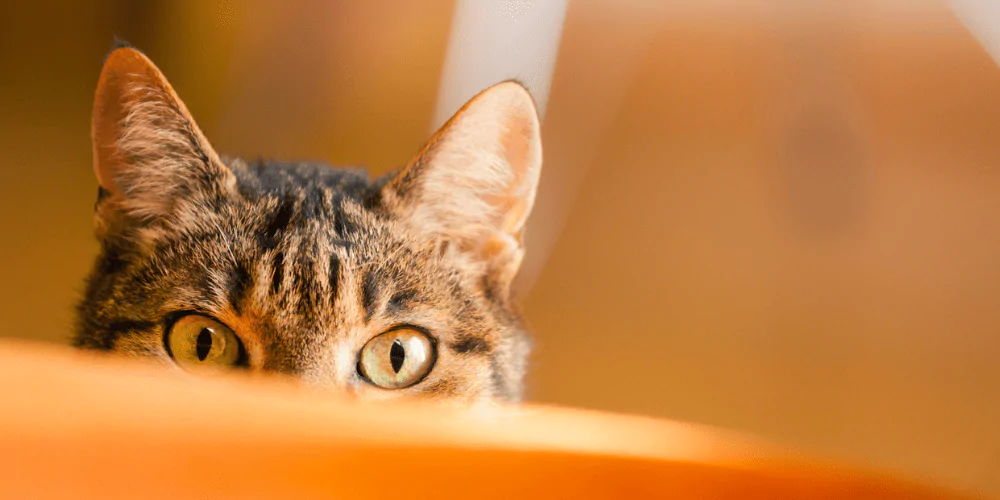
How do cats become deaf?
Some felines are born deaf, known as congenital deafness. Others can slowly become deaf as they reach their twilight years or suddenly lose their hearing due to illness or injury.
Just like with human deafness, cat hearing loss is on a scale and can either be reversible or permanent.
Causes of reversible deafness include:
- Ear mites
- Excess wax
- Growths
- Ear infections (outer and middle ear)
Causes of permanent deafness include:
- Age
- Genetics/breed
- Ear infections (inner ear)
- Noise trauma
- Toxins and drugs
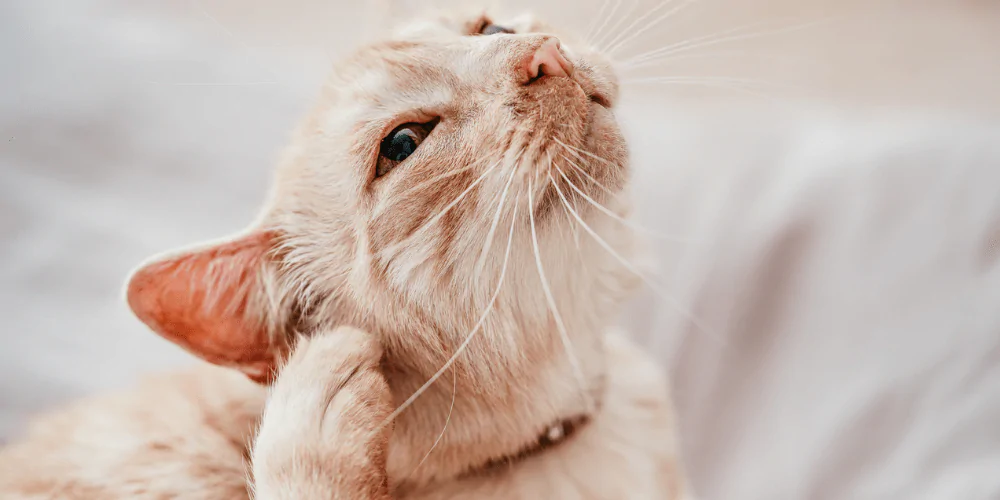
How to tell if your cat is deaf
It’s not always easy to tell if your cat is deaf. Especially if they still have hearing in one ear or they’re in the early stages of hearing loss.
Symptoms include:
- No longer reacting to their name or loud noises, especially if they were afraid before
- Shaking or pawing at their ear
- A brown, grey, green or black discharge coming out of their ear
- Dizziness
- Changes in the normal carriage of the ear, for example, holding one ear flat compared to the other
A few things you can try at home to test if your cat is deaf are:
- Clapping your hands from a distance and out of their line of sight to see if they react
- Looking to see if they’re always turning one ear towards sounds
- Watching out for general reactions to noises, such as opening doors, other animals, household appliances
- Seeing if they still respond to their name when called
Most cats will hear the sound of their food hitting the bowl, or a packet of their favourite treats being opened. Just make sure your cat can’t see you open the packet or scoop the food when doing this test.
Speak to your vet if you suspect that your kitten is completely deaf or your cat is starting to lose their hearing.
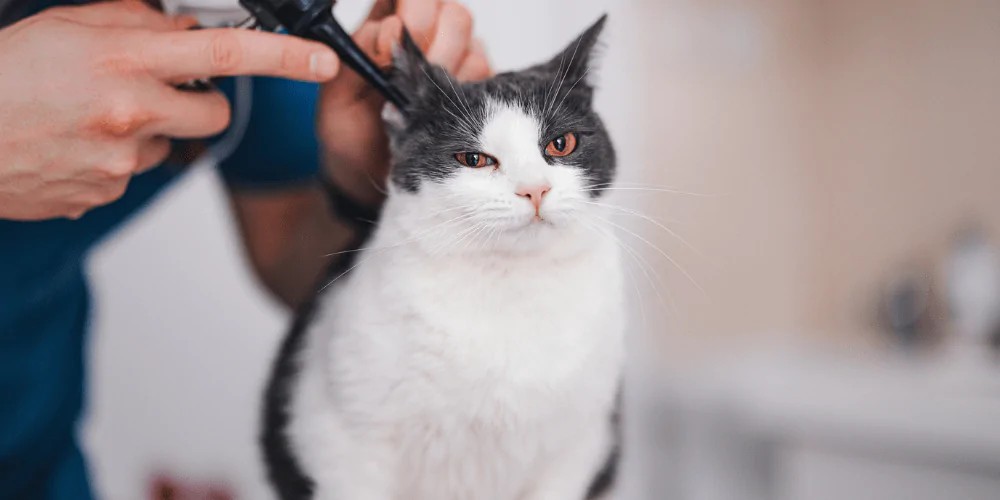
Treating deafness in cats
Treatment for reversible deafness depends on the underlying cause. For example, removing a growth in the ear canal or clearing out a build-up of ear wax.
Permanent deafness caused by genetics or age can’t be treated or reversed. So it’s all about adapting your behaviour towards your cat and their environment to make them feel safe and loved.

How to care for your deaf cat
Deaf cats can lead healthy and happy lives – with a little extra help from their human. A deaf cat needs to live an indoor life, as the risk of injury outside is too great without hearing abilities.
Here’s what you can do to look after your hard-of-hearing feline:
- Give them plenty of stimulation – after all, they need play time just like any other cat. Make your home as engaging as possible so your kitty doesn’t get stressed from frustration or boredom.
- Create lots of high points in the rooms they hang out – this helps them feel safe and gives them a better visual of what’s going on around them.
- Set up a good routine – this helps your kitty know when to expect things like their feeding times.
- Approach them gently – it’s easy to startle a cat who can’t hear you coming. Gently stamp your feet to create vibrations as a way to let them know you’re there. Wake them up by touching the area near them rather than them directly.
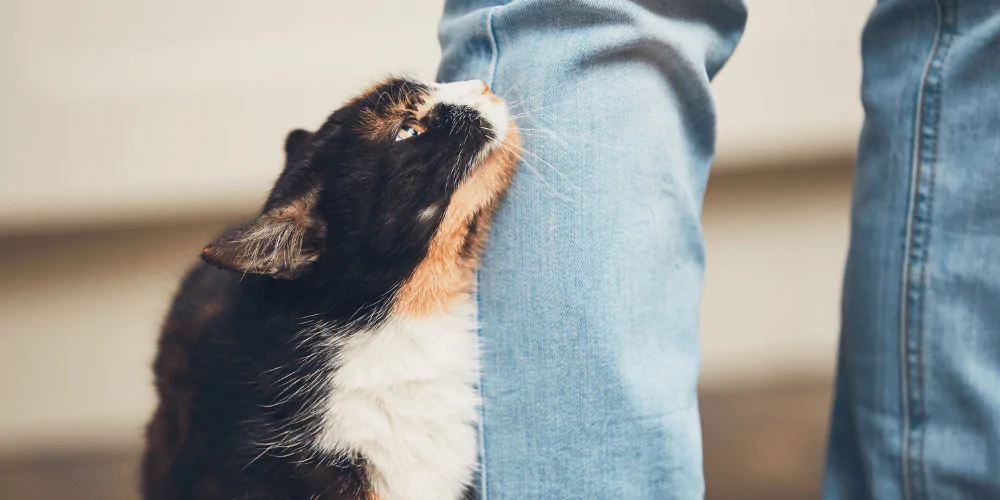
> How to communicate with your deaf cat
Focusing on positive body language and facial expressions towards your deaf cat is a great way to show them love and affection.
With time, patience, and positive reinforcement, you could even try to teach them basic hand gesture cues.
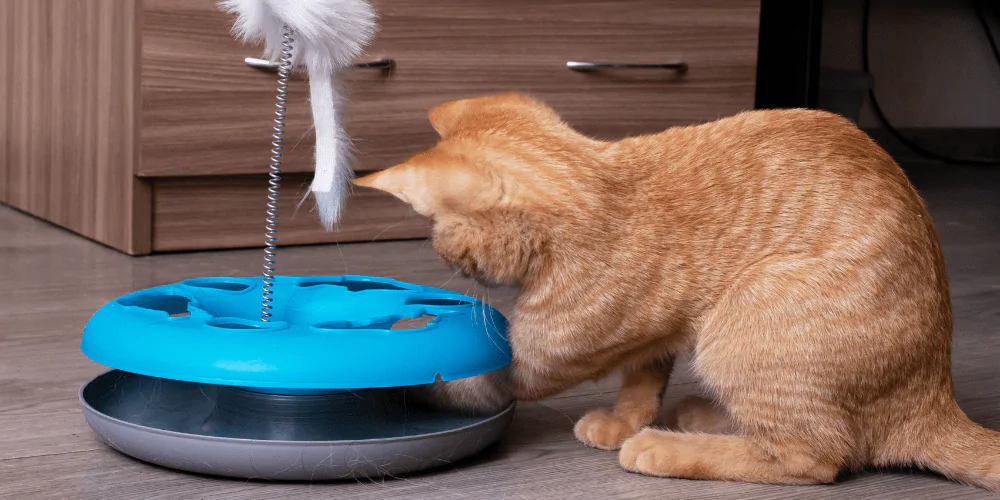
> Best toys for deaf cats
Cat toys that are eye-catching with bright colours, enticing textures, and lots of movement should hopefully prove a hit with your feline. You can also encourage them to make more use of their other senses such as smell and taste.
Examples of fun toys and activities include:
- Cat teasers
- Feather wands
- Multi-level cat trees
- Food puzzles
- Snuffle mats
- Hiding treats around the room
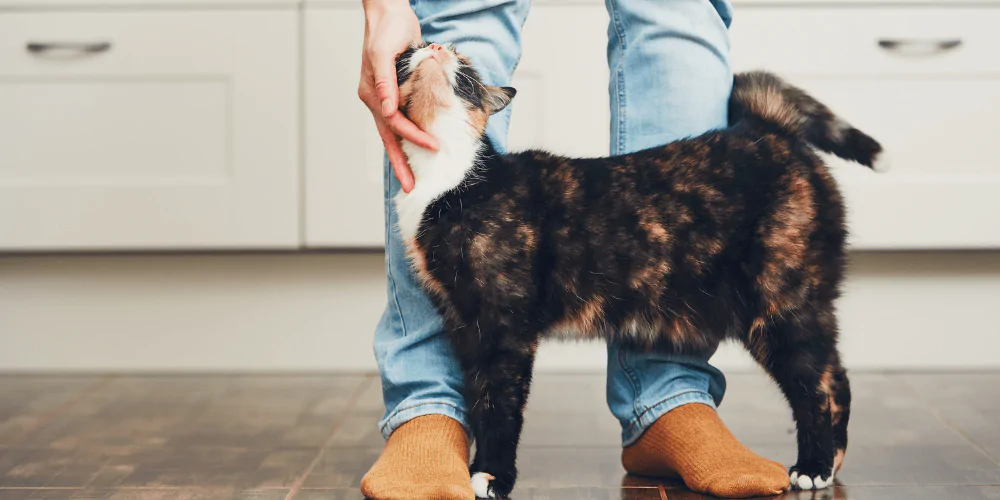
Deaf cat behavioural problems
It’s possible for deaf cats to feel more anxious as they’re more vulnerable to predators. But hard of hearing felines are prone to the same behavioural problems that their hearing counterparts do.
So if you’re at all worried about your cat’s behaviour, reach out to a veterinary behaviourist for support.
> Are deaf cats more affectionate?
Deaf cats can be just as affectionate as hearing cats. Cats have their own unique personalities and it’s this, along with your bond, that will shape their affection towards you.
You might notice that they’re more physical with you as their chosen form of communication.
> Are deaf cats more vocal?
Deaf cats may vocalise louder and more often – including purring and meowing – than hearing cats because it’s harder for them to control their volume.
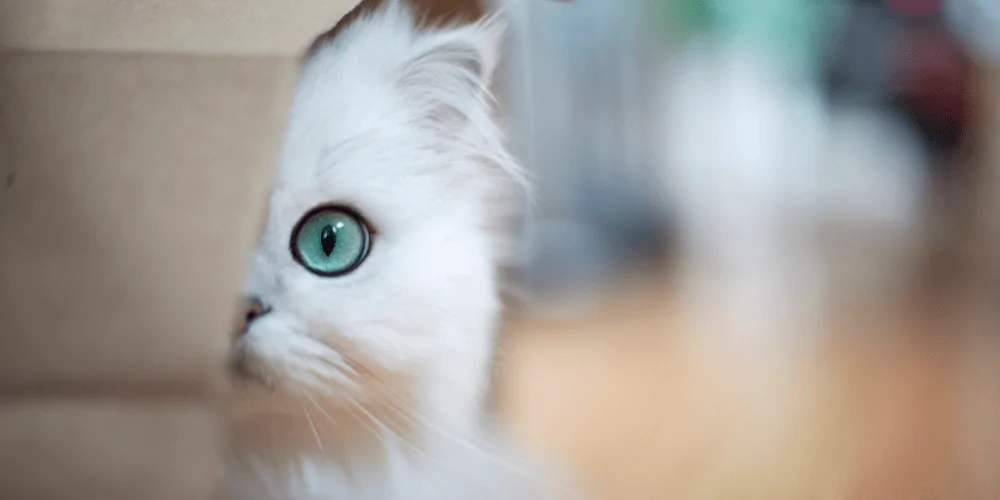
Other questions about cat deafness
> Are white, blue-eyed cats deaf?
White cats with blue eyes are a rarer mix among the cat population but are at a higher risk of being born deaf. This is because a defective gene can cause them to have inner ear development problems.
A 2019 study on congenital sensorineural deafness (CSD) looked at 132 solid white purebred kittens and 61 coloured littermates in the UK.
The study found that deafness was:
- Only diagnosed in solid white kittens
- More common in white kittens with one or two blue irises than those without
- Kittens with one blue iris were three times more likely to have CSD than those without blue irises
It also noted a higher congenital deafness diagnosis in the following breeds:
- Turkish Vankedisi (seven out of 15 cats)
- Maine Coon (18 out of 41 cats)
- Norwegian Forest (3 out of 11 cats)
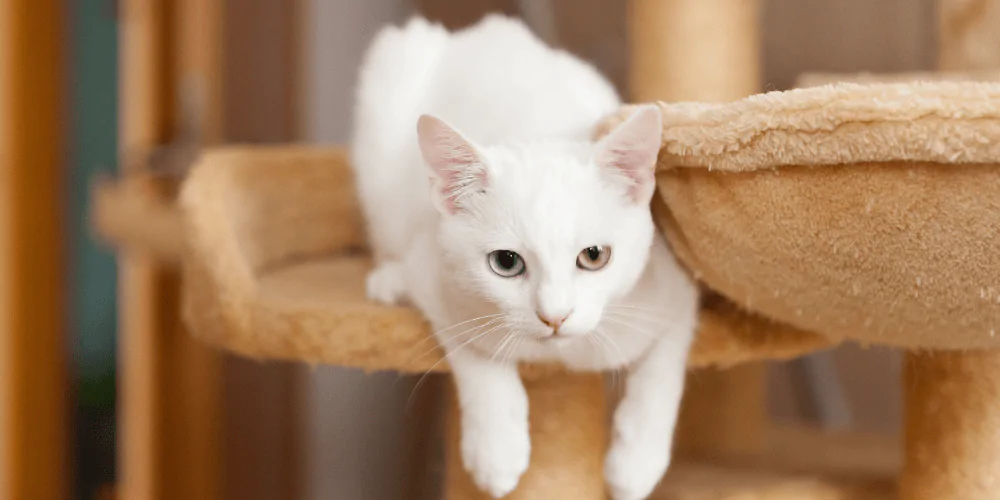
> Are all white cats deaf?
Although white cats are more at risk of congenital deafness compared to non-white cats, not every cat will be born deaf.
Speak to your vet if you’re at all worried that your cat is showing any symptoms of deafness or doesn’t seem right in themselves.
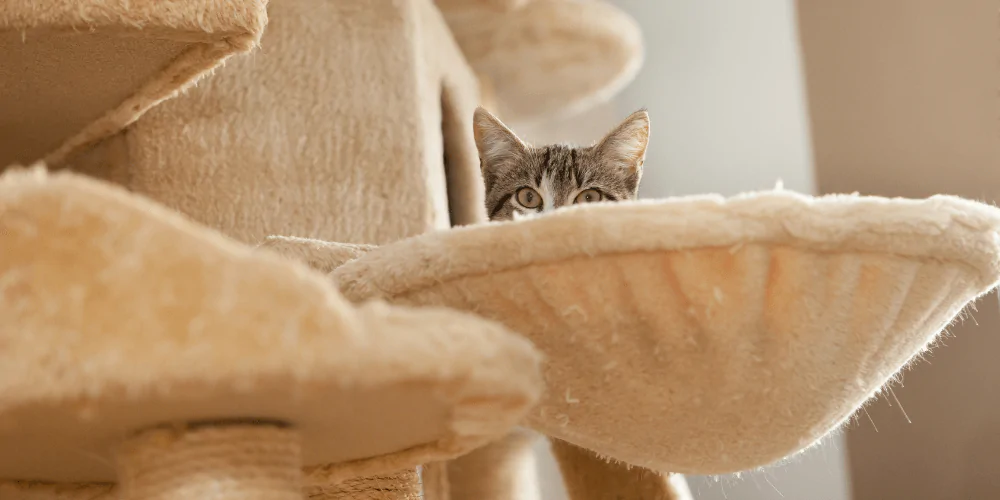
> Is my cat deaf or ignoring me?
We get it – cats can be sassy. They have selective hearing at times, so much so that you may question your sanity, or whether they’re actually deaf.
One of the easiest ways to tell is by their meows. They’ll either be non-existent or louder and more frequent than cats who don’t struggle with their hearing.
Your vet will be able to examine your cat and run tests to check if they’re truly hard-of-hearing.
Look after your top cat with flexible cat insurance from Petsure.


